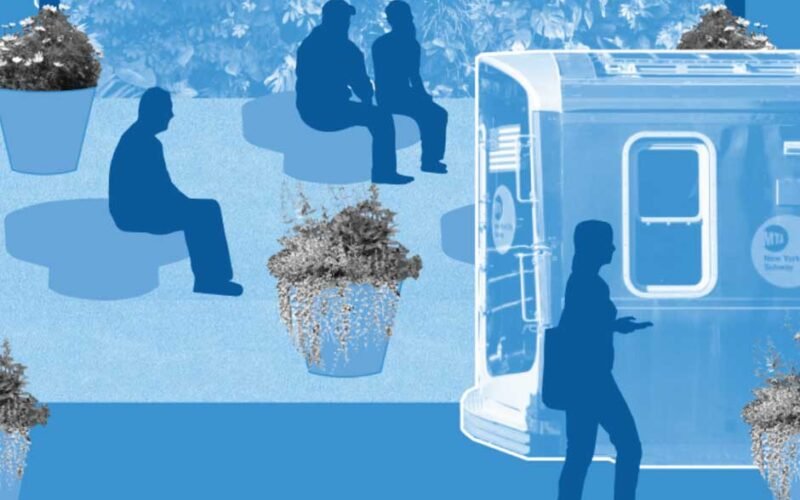It’s no secret that the state of our surroundings affects the state of our minds. A cluttered desk can leave us feeling distracted, while a tidy living room can instantly create a sense of calm. But beyond personal preference, there’s actual psychology behind why clean and orderly spaces matter so much.
The Mental Impact of Clutter
Clutter doesn’t just take up physical space; it takes up mental space, too. Studies have shown that disorganization can overwhelm our senses, increase stress levels, and even make it harder to focus on tasks. When our environment feels chaotic, our brains have to work harder to process information. This explains why many people find it difficult to concentrate or relax when surrounded by a mess.
Clutter is also linked to procrastination. A study by the Princeton University Neuroscience Institute found that visual disarray competes for your brain’s attention, making it harder to allocate focus to the task at hand. This can lead to putting off chores or assignments simply because your mind feels overloaded. In contrast, environments with fewer distractions make it easier to direct attention and complete work more efficiently.
Order and Productivity
On the flip side, organized spaces support clearer thinking. A tidy environment minimizes distractions, allowing the brain to direct more energy toward problem-solving and creativity. For students, professionals, and even children, a clean space can make daily routines flow more smoothly. Simply put: order supports efficiency.
Consider the difference between working at a desk covered in papers, wrappers, and random items versus sitting down at a space with only a notebook, laptop, and pen. The second scenario primes your brain for focus, while the first keeps tugging your attention in a dozen directions. Many productivity experts suggest beginning each day with a “reset”, putting items back in their place to create the conditions for clear, concentrated work.
The Connection Between Cleanliness and Mood
There’s a reason many people describe cleaning as therapeutic. Engaging in small cleaning rituals — like making the bed or clearing the kitchen counter — can trigger a sense of accomplishment. Even better, the result provides visual proof of progress. This cycle of effort and reward can lift mood, reduce anxiety, and create a more optimistic mindset.
In fact, a 2009 study published in Personality and Social Psychology Bulletin found that people who described their homes as “cluttered” were more likely to feel depressed and fatigued. Meanwhile, those who reported their spaces as “restorative” experienced lower stress and greater overall well-being. Clearly, the way we interact with our surroundings shapes how we feel day to day.
Social Benefits of a Tidy Home
The benefits of clean living aren’t limited to our inner world; they affect how we connect with others, too. A well-kept space often makes us more willing to host friends and family. When we aren’t embarrassed by clutter, we can enjoy social gatherings without the nagging worry of judgment. This fosters stronger connections, more shared meals, and greater feelings of community.
Additionally, parents often report that children in organized households are calmer, more cooperative, and better at managing routines. Teaching kids to maintain their rooms not only instills responsibility but also gives them the psychological boost of having a space that feels safe and orderly.
When to Call in Reinforcements
Of course, life doesn’t always allow us the time or energy to keep everything perfectly organized. Between work, family, and social obligations, staying on top of household chores can feel overwhelming. That’s where professional support comes in. Many people turn to expert house cleaning services to handle the heavy lifting, freeing them to focus on work, hobbies, or simply enjoying downtime in a refreshed environment.
Hiring outside help doesn’t just save time; it can also reduce stress by removing a significant source of guilt and frustration. Instead of dreading the pile of laundry or the dusty shelves, you gain peace of mind knowing your environment is being taken care of. For those balancing busy schedules or managing large households, professional assistance can be the difference between constant stress and a manageable lifestyle.
Cleanliness as Self-Care
Maintaining a clean home isn’t about achieving perfection. It’s about creating a space that supports mental clarity, emotional stability, and physical health. Dust-free rooms can improve air quality, tidy kitchens encourage healthier eating habits, and organized spaces reduce the risk of accidents. Each of these contributes to a lifestyle that prioritizes well-being.
Think of cleaning as a form of self-care rather than a chore. Just as exercise strengthens the body and meditation calms the mind, cleaning nurtures a sense of control and accomplishment. This shift in perspective can make routine tasks feel purposeful rather than burdensome.
Clean Spaces, Clearer Minds
Ultimately, the desire for order is deeply rooted in human psychology. Clean rooms don’t just look better—they help us feel better. By reducing stress, supporting productivity, and boosting mood, tidy spaces offer a foundation for healthier living. Whether you handle it yourself or lean on professionals, keeping your environment organized is more than a chore; it’s a form of self-care.
A tidy home may not solve every problem, but it can provide the clarity and calm we need to tackle life’s challenges with a clearer mind and lighter spirit. And when life feels overwhelming, it’s worth remembering that even small steps—like decluttering a drawer or clearing a table can create momentum toward balance and peace at home.










